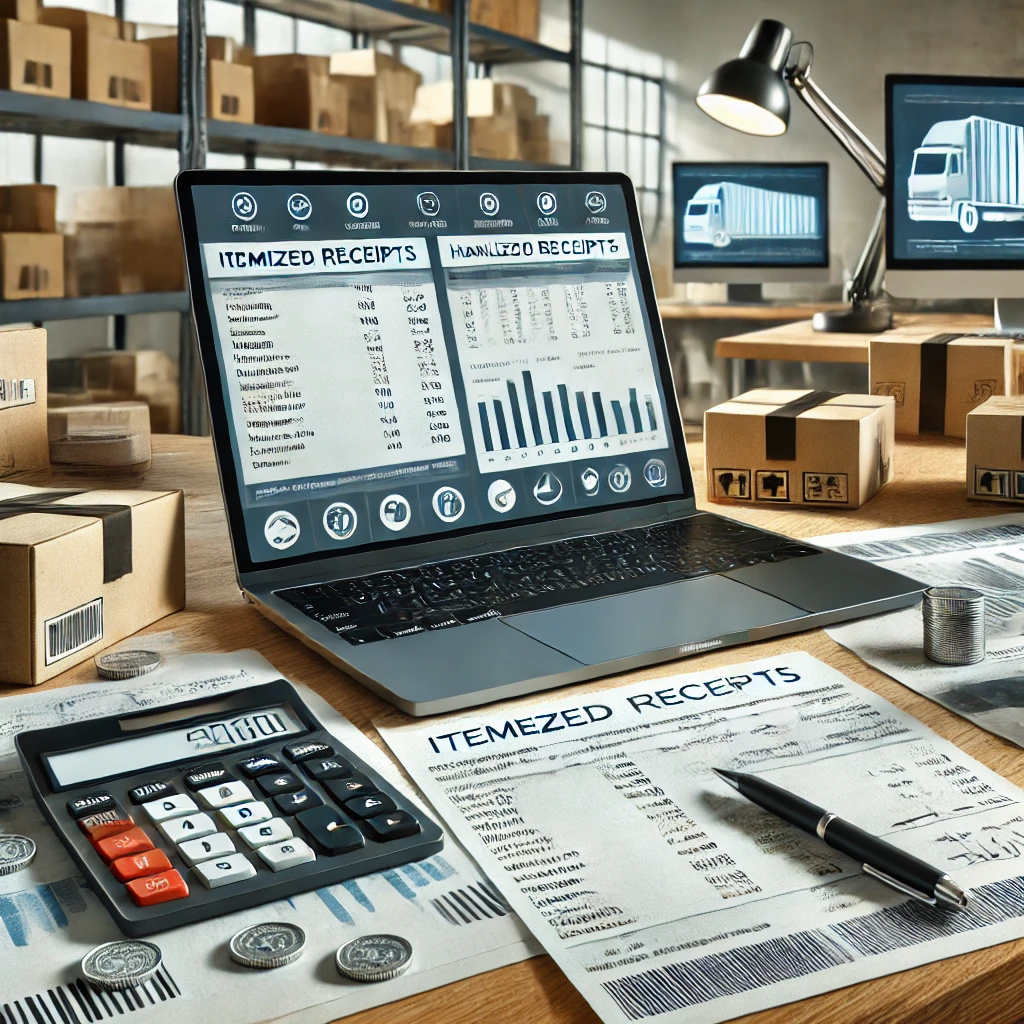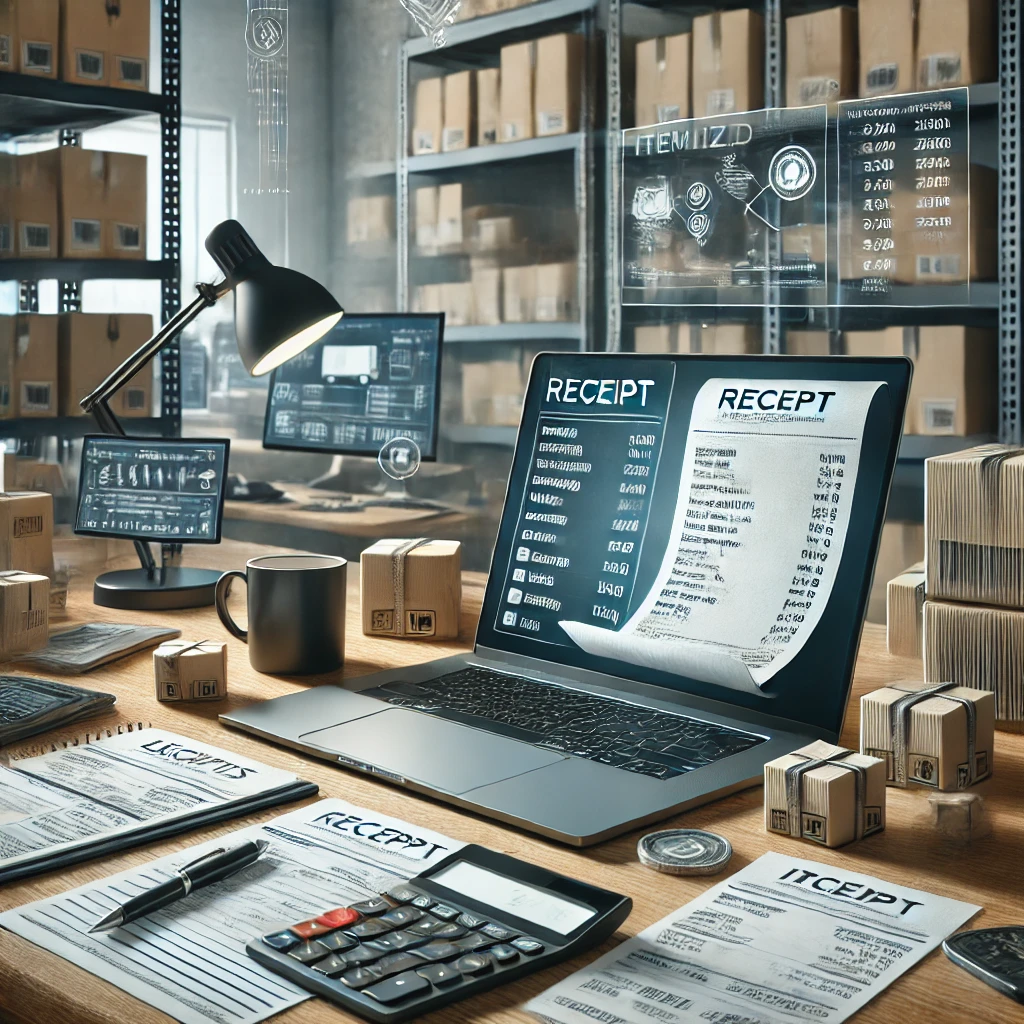Creating Professional Itemized Receipts: A Complete Guide for Logistics Companies
Itemized receipts are a vital component of logistics operations, providing detailed records of services and transactions. They go beyond simple transaction documentation, capturing essential information such as transportation costs, handling fees, and other charges that support accurate billing, customer transparency, and compliance with tax regulations.

Key Takeaways
- Essential components of logistics itemized receipts
- Industry-specific requirements and best practices
- Digital solutions for receipt management
- Compliance and record-keeping guidelines
- Time-saving automation tips
Understanding Itemized Receipts in Logistics
An itemized receipt in logistics goes beyond basic transaction documentation. It serves as a detailed record of services rendered, including transportation costs, handling fees, and additional charges. These receipts are crucial for:
- Accurate billing records
- Customer transparency
- Tax documentation
- Audit trails
- Dispute resolution

Essential Components of Logistics Itemized Receipts
Basic Information
- Company name and contact details
- Date and time of service
- Receipt number
- Payment method
- Customer information
Service Details
- Individual service descriptions
- Quantity or units
- Rate per unit
- Line item subtotals
- Additional fees breakdown
Logistics-Specific Elements
- Shipping origins and destinations
- Weight and dimensions
- Handling specifications
- Special requirements
- Insurance charges
Best Practices for Creating Itemized Receipts
1. Clear Organization
- Group similar items together
- Use consistent formatting
- Include clear section headers
- Maintain readable font sizes
- Ensure proper spacing
2. Detailed Descriptions
- Use specific service names
- Include service codes when applicable
- Add relevant reference numbers
- Note special conditions
- Document additional requirements
3. Professional Presentation
- Include company branding
- Use high-quality paper for physical receipts
- Ensure clear printing
- Maintain consistent styling
- Include professional disclaimers

Itemized Receipts Common Challenges and Solutions
Challenge 1: Complex Pricing Structures
Solution:
- Break down complex fees
- Provide subtotals for categories
- Include pricing explanations
- Use clear calculation methods
Challenge 2: Multiple Services
Solution:
- Organize by service type
- Use clear categorization
- Provide service summaries
- Include package details
Challenge 3: Special Requirements
Solution:
- Highlight special handling
- Document specific instructions
- Note additional charges
- Include requirement details
Legal and Compliance Requirements
Record Keeping
- Maintain copies for required periods
- Ensure secure storage
- Enable easy retrieval
- Follow industry regulations
Tax Compliance
- Include required tax information
- Separate taxable items
- Document tax calculations
- Meet regional requirements
Digital Solutions for Itemized Receipts
Benefits of Digital Systems
- Automated generation
- Instant delivery
- Easy storage and retrieval
- Integration capabilities
- Error reduction
Implementation Tips
- Choose user-friendly systems
- Ensure staff training
- Maintain backup systems
- Regular system updates
- Monitor performance

How Linbis Logistics Software Streamlines Receipt Management
Automated Receipt Generation
Linbis’s logistics software provides:
- One-click receipt creation
- Customizable templates
- Automatic calculations
- Professional formatting
- Brand consistency
Integration Features
- Connect with accounting systems
- Link to shipping data
- Sync with customer records
- Interface with payment systems
- Real-time updates
Efficiency Improvements
- Reduce manual entry
- Minimize errors
- Speed up processing
- Improve accuracy
- Enhance tracking
Customer Service Benefits
- Instant receipt delivery
- Easy receipt retrieval
- Clear documentation
- Professional presentation
- Quick issue resolution
Best Practices for Implementation Itemized Receipts
- Staff Training
- System orientation
- Regular updates
- Procedure documentation
- Ongoing support
- System Setup
- Template customization
- Integration configuration
- Testing and validation
- Backup procedures
- Monitoring and Maintenance
- Regular audits
- Performance checks
- System updates
- User feedback
Conclusion
Creating professional itemized receipts is crucial for logistics companies to maintain accurate records and provide excellent customer service. By implementing digital solutions like Linbis’s logistics software, companies can streamline their receipt management process, reduce errors, and improve efficiency.
Getting Started with Linbis
- Schedule a demo to see the system in action
- Learn about customization options
- Discover integration capabilities
- Explore automated features
- Begin your digital transformation
